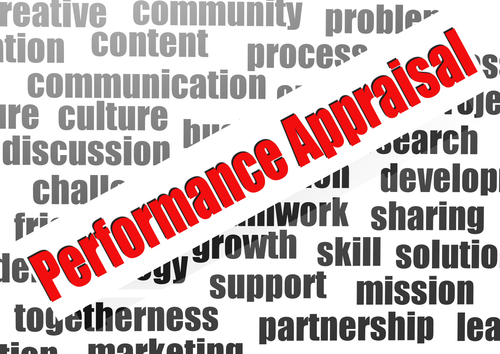Performance appraisals shouldn’t start and end with one annual meeting, yet this is a common mistake many employers make—a mistake that can leave employees blindsided and frustrated instead of empowered and productive.
 |
The annual meeting is just one step in the performance appraisal process, not the whole process in and of itself. The process should include goal and incentive setting, continual updates and feedback, employee development opportunities, and requests for improvement when required. With each of these components in place, the discussion that occurs during the annual review should never come as a surprise.
Problems with Lack of Communication Throughout the Year
Too many organizations place all of their emphasis on simply getting annual appraisals completed for employees—while not emphasizing all the other equally important aspects of the process. This creates a situation in which the performance review process can be fraught with tension and misunderstandings, especially if there is an issue that is raised for the first time in this setting. If an employer simply uses an annual review, without feedback throughout the year, it’s likely that employees could be genuinely surprised at the feedback they receive.
An employee likely has an expectation that if something is wrong, he or she will be told. In the absence of any indication there is a problem, it’s reasonable to assume that everything is okay. This makes it especially confusing to hear about a problem for the first time during a performance appraisal. Not only is it a shock, the employee could have genuinely felt they were meeting expectations—after all, they had no reason to think otherwise.
Putting yourself in their shoes, it’s easy to see why an employee might become frustrated: they’ve not been told anything is wrong for months on end, and then they’re suddenly told they’re not up to par. They’ve had no warning and are justifiably upset at this news—after all, most of us would be happy to improve if we knew there was a problem!
Additionally, employees often view appraisal time as crucial to whether or not they will receive any pay increase for the following year. It can be crushing to get a surprise rating of less than anticipated, as this is not only a blow to the ego but might also be a blow to the pocketbook.
The effects of this situation can be felt both before and after an unproductive performance review meeting. For example, if one employee is underperforming for months and nothing is said, other employees can lose morale because they’ve lost faith that their employer holds others accountable—especially if they have had to pick up the slack. On top of that, the idea that this employee’s behavior is acceptable gets reinforced. Resentment and poor morale can also lead to decreased productivity and higher turnover.
In other words, it’s counterproductive for everyone to simply ignore a performance issue for many months, yet this undesirable environment is fostered by any employer that does not bring issues to the employee’s attention straightaway.
What to Do Instead
The simple solution is to ensure that all managers and supervisors give feedback to employees in a timely manner throughout the year—never opt to postpone discussions regarding successes and shortcomings until an annual performance review.
By continually giving feedback and measuring goal progress throughout the year, neither management nor the employee will be surprised when appraisal time comes around. If an employee is not performing up to expectations, he or she should be given a chance to improve. Employees and their supervisors should communicate often so that employees will understand their status and progress against goals at any given time.
Continual feedback also alleviates the tension associated with the review process. If employees know where they stand, they won’t feel any fear coming into the review. If the manager has been consistently giving feedback and documenting progress, both manager and employee will be well-prepared for the meeting.
About Bridget Miller:
Bridget Miller is a business consultant with a specialized MBA in International Economics and Management, which provides a unique perspective on business challenges. She’s been working in the corporate world for over 15 years, with experience across multiple diverse departments including HR, sales, marketing, IT, commercial development, and training.
